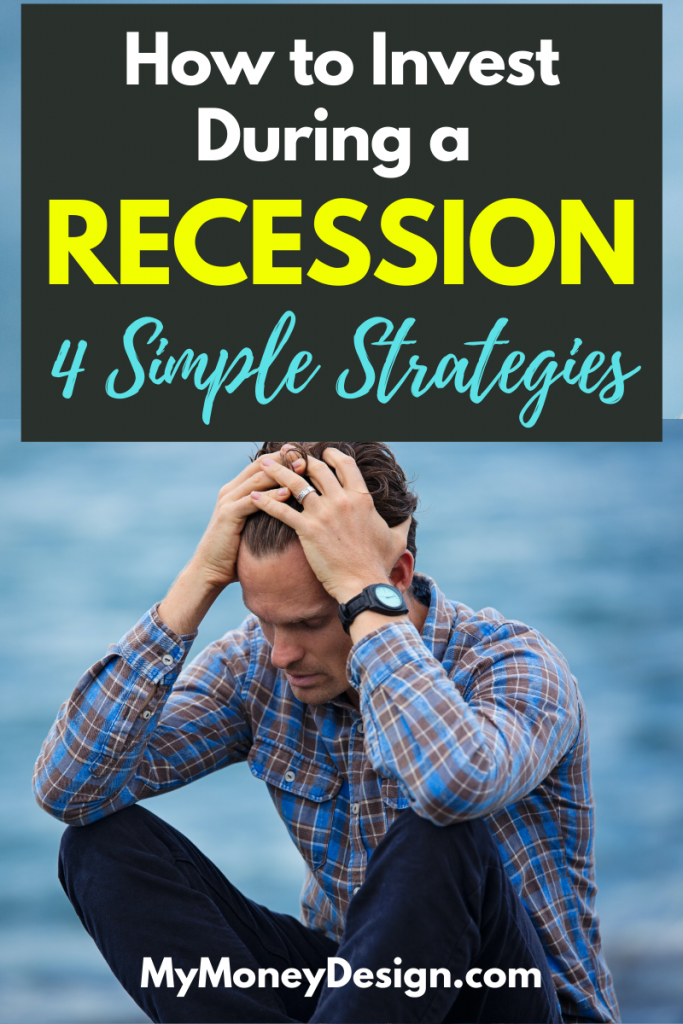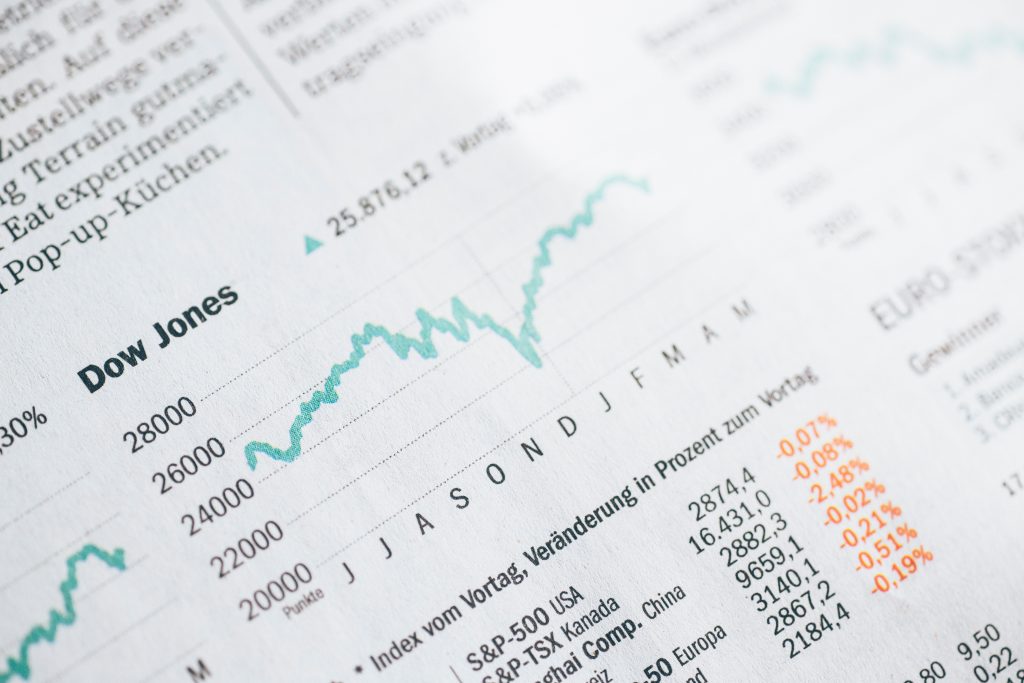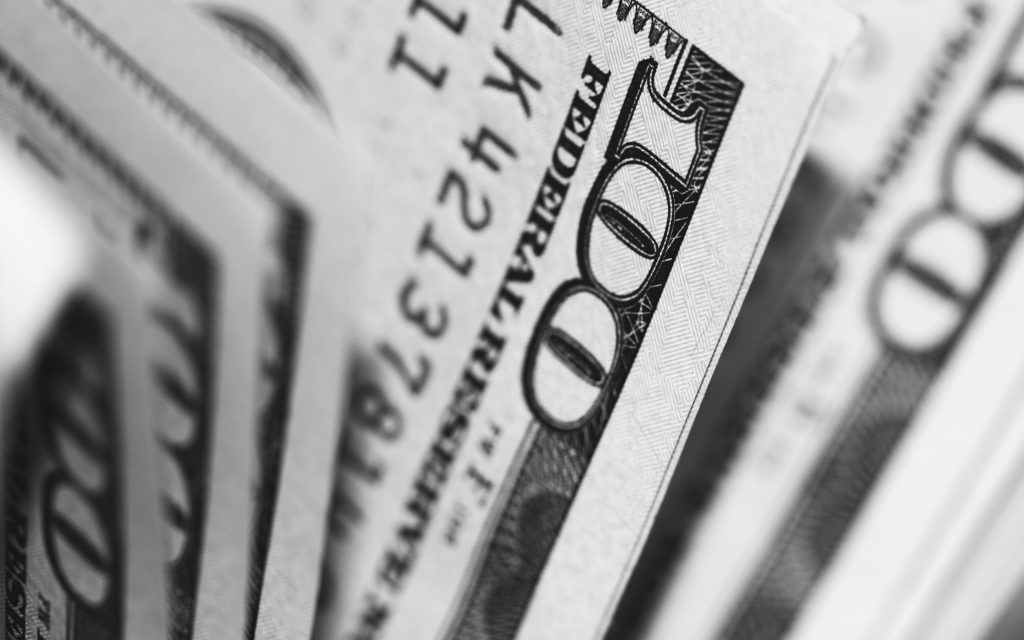
“Recession” … its a word that strikes fear in the hearts of investors both young and old.
Generally, when a recession hits, you know what you’re in for. The stock market tanks, your 401(k) loses value, businesses you know and love close, and major media is in a frenzy every day about the latest financial disaster to strike.
The NBER (National Bureau of Economic Research) defines a recession as “a significant decline in economic activity spread across the economy, lasting more than two quarters which is 6 months, normally visible in real gross domestic product (GDP), real income, employment, industrial production, and wholesale-retail sales. To date, there have been 47 recessions in the United States since the Articles of Confederation (1777).
While falling stocks and market turbulence can leave you uneasy about the security of your nest egg, the truth is: As an investor, you haven’t lived until you’ve navigated your way through a recession.
Anyone can invest during the good times. You throw money into your 401(k), it goes up, and everyone is happy! Nothing to it.
However, the part about investing that everyone forgets about is that with “reward” also comes “risk”. And when a recession hits, you know exactly what “risk” they were talking about.
When a recession hits, you need to adjust your mindset so that you don’t do anything irrational. You also need to remember that they are a perfectly natural part of our cyclical economy. Recessions are only temporary and generally only last for approximately 11 months.
Truth be told, if you keep these points in mind and act strategically, you can make the most out of a recession by buying the right kinds of assets. Here’s how to invest during a recession and treat it less like a hindrance and more like an opportunity.
Buy More Stocks

Before we can start making money during a recession, we need to first ensure that you’re not going to lose any money by doing something rash. Therefore, start by doing this.
Don’t Sell Your Current Stocks or Stock Funds
One of the worst things you can do during a recession is to sell any stocks or funds containing stocks. It can be incredibly tempting since it will feel like that’s the only way to prevent you from losing money. But I’ll urge you – don’t do it! Here’s why:
Think about the old investment mantra “buy low, sell high”. During a recession, the value of your stocks will most likely be depressed. So selling them will only make you “lock-in” to those low prices. We don’t want to do that.
Instead, leave your current allocation of stocks right where its at, and take these actions instead.
Invest New Money Into More Stocks
If there’s anything you do want to do during a recession, its to take advantage of those low stock prices and buy up as many good opportunities as possible.
The easiest way to do this will be to take your monthly automatic retirement plan contributions and increase your future stock allocations. For example, if your portfolio was 60% stocks and 40% bonds, change it to 80% stocks and 20% bonds. That way, you’ll be buying up even more low-priced securities than you normally would.
Increase Your Contribution Level Altogether
In fact, if you’ve got any money to spare, now would be a wonderful time to increase your contribution level altogether. Let’s say you’re contributing 10 percent to your 401(k). How about bumping that up to 15 percent?
Again, I know it will feel counter-intuitive. But think about how that would work. All the new money you’d be investing could be used to scoop up even more stocks at their temporarily discounted prices. As time goes on and the shares start to go back up in value, you’ll have even more of them than you would have had if you hadn’t increased your contribution level.
Re-balance Bonds and Cash in the Stocks
Okay, so I said to leave your stock allocation right where it’s at. By that, I mean don’t sell any of your stock funds. But that doesn’t mean you can’t sell some of your funds that are doing okay and then use the money to buy more stocks.
I’m talking about rebalancing your portfolio. Rebalancing is a simple practice where you reset the percentages of your stocks and bonds. Effectively, it takes money from the winning assets and use it to buy shares of the assets that have lost money. Even though that can seem counterintuitive, its a very healthy and effective way to force yourself to take advantage of the low asset prices.
Generally during a recession, bonds and even cash investments will tend to go up while the stocks go down. So if you re-balance, you’d be effectively locking into these increased prices (… the “sell high” part of the mantra from earlier …).
Stop Checking Your Portfolio
The greatest threat of sabotage to your investment portfolio is your own psyche. The best thing you can do to curb it during a recession is to just stop checking on your portfolio. Don’t look at how much its gone down because all this will do is to cause you to worry, panic, and probably do something that you’ll wish later you hadn’t.
Instead, disconnect yourself from daily market slides and bad news, and just to hold tight. Ride out the storm and wait for the storm to pass. It always does eventually.
Invest in Dividend Stocks

If its good opportunities you’re looking for when it comes to investing during a recession, then you need not look any further than dividend stocks.
Dividend stocks are the shares of companies that pay their owners a dividend or cut of the profits every quarter. In other words, for simply owning the stock, you’ll receive a payment. Dividend yields are typically anywhere from 1 to 4 percent annually with some paying even more.
Why Dividend Stocks are Good Deal
In addition to receiving quarterly payments whether the stock value goes up or down, there’s a lot to love about buying up dividend stocks during a recession.
Just like we talked about in the last section, anytime a reputable company’s share price is down due to the markets, its a good time to swoop in and buy as many shares for a bargain as possible. Dividend stocks are certainly no exception. In fact, every share that you purchase entitles you to more dividend payments, so the more the better!
Also, most companies that can pay out dividends are generally able to do so because they are making profits and have solid financials. Overall, that will help ensure that the company stays strong and will not be too adversely affected by the temporary market downturn. Together, this will give you confidence that the share price will eventually go back up and produce more capital gains.
Just be careful of companies that might try to inflate their dividend yield just to make themselves look more attractive. Usually, strategies like this are not sustainable and the company will either cut their dividend payments by the next quarter or run themselves deeper into financial issues.
Where to Find Good Dividend Stocks
Great dividend-paying stocks are not to hard to find. There are two go-to places to find them: The Dividend Aristocrats and Dogs of the Dow.
The Dividend Aristocrats are an elite group of companies who have not reduced their dividend payout in over 25 consecutive years. If you’re looking for safety and security knowing that the company will continue to pay its shareholders through thick and thin, then this a good list to comb through.
You might wish to buy the individual stocks of some or all of these companies yourself. Or, alternatively, you could make life easy and buy all of them at once by simply picking up the ProShares S&P 500 Dividend Aristocrats ETF from your favorite discount broker.
The Dogs of the Dow are the ten companies in the Dow Jones Industrial Index that have the highest dividend yield. The strategy behind picking these ones is that because their dividend yield is so high, it means that the current stock price does not reflect where the company believes it will be financially in the near future, and could potentially be a good deal. Within this group of ten companies is a subgroup called the “small dogs” where only the top five are considered.
There are some mutual funds and ETFs that invest in the Dogs of the Dow, but none of them are 100% all dogs. Since there are only ten stocks, it may be easier to just work with a discount broker and buy the individual stocks yourself.
Consider Real Estate

Stocks aren’t the only asset that usually goes down in value during a recession. Often times real estate can also become depressed during tough economic times. With the threat of job security, reduced net worth, and likely no increase in salary, many people stop looking for houses or simply let their house fall into foreclosure altogether.
While those situations are certainly tough for those people, it does create some lucrative investment opportunities for others with financial security. Here are a few strategies you may want to consider.
Upgrade Your Primary Home
Though it’s debatable if your home should be considered an investment, it’s without a doubt an asset. It’s something that has value when you buy and (hopefully) more valuable when you sell it one day.
Of course, not all homes appreciate at the same rate. For example, if you’re in a neighbordhood thats not as desireable as other ones, you might only notice your home increasing in value by a few thousand dollars per year. By taking advantage of the recession, you could leverage the depressed home prices as a chance to upgrade to a more prestigous home or area. Then you might see your home value increase more rapidly.
Consider Rental Properties
Ever thought about becoming a landlord as a side hustle? A recession is the perfect time to find a great deal on your first rental property.
Start by looking for single-family homes in your area where you’re familiar with the community and home prices. If you see an opportunity to buy a house at a depressed price, then start looking into what landlords in the area charge for rent. Put together a business case and see if it would be a profitable venture.
If you’re feeling very adventurous, you could always look for properties that are outside your town and in areas where you know there is a high potential for tenants or even Airbnb guests. For example, buying homes or condos in college towns or vacation destinations might help always keep your property in high demand.
Buy REITs
If buying real estate seems exciting but you’d rather not mess around with physical property, then you can still get in on the action by buying into a REIT.
REITs (real estate investment trusts) are companies that operate similar to mutual funds and ETFs where groups of investors pool their money together to finance various forms of real estate. These are generally much larger scale projects such as office buildings, medical facilities, warehouses, etc.
Other than being able to invest in real estate, the big attraction to investing in a REIT is that they produce relatively high dividend yields. REITs are required to payout at least 90 percent of their taxable income to shareholders. Many go so far as to payout 100 percent. This means that similar to dividend stocks there is some assure that you’ll regularly be receiving payments, even during the market turbulance.
Just like stocks, there are good and bad REITs. Be sure to always do your homework upfront and only invest in reputable ones with solid financial track records.
Build Up Your Emergency Fund

If the thought of sinking your money into anything related to stocks or real estate just sounds too risky, then there’s still one more thing you can do that will be incredibly valuable: Build up your emergency fund.
Most financial gurus out there agree that your emergency fund should be a cash-only account consisting of at least 3 to 6 months worth of living expenses. The idea is that in case something unforeseeable happens (… like a worldwide pandemic …) and you were to be out of a job for several months, you’d have a financial cushion to fall back on.
While most people know this is a good idea, they rarely ever actually do this. The thought of having that much money just sitting there inside a cash account earning less than 1 percent interest seems ridicoulous. However, I take a different persepctive.
You should think of your emergency fund as a self-made insurance policy rather than an investment. If the worst were to happen and you didn’t have an emergency fund, what would you do? Rack up your credit cards and take out personal loans at crazy high interest rates? Raid your 401(k) and destroy years of saving for retirement plus sabatoge all future compound returns? Or worse – miss your mortgage or utlitliy payments and get kicked out of your home?
With an emergency fund, you prevent all of that. That’s why its important to see it for what it is and all the financial burden it can save you if you take the time to build a sizeable cushion.
Plus, who knows … Our tolerances for risk and attitudes toward investing change and evolve just like every other part of our human psyche. If you spend the time now to build up a decent emergency fund, perhaps when the next recession hits (and yes there will be another one some day), you’ll be ready to swoop in and buy up those securities at a bargain!
Photo credits: Unsplash


Leave a Reply